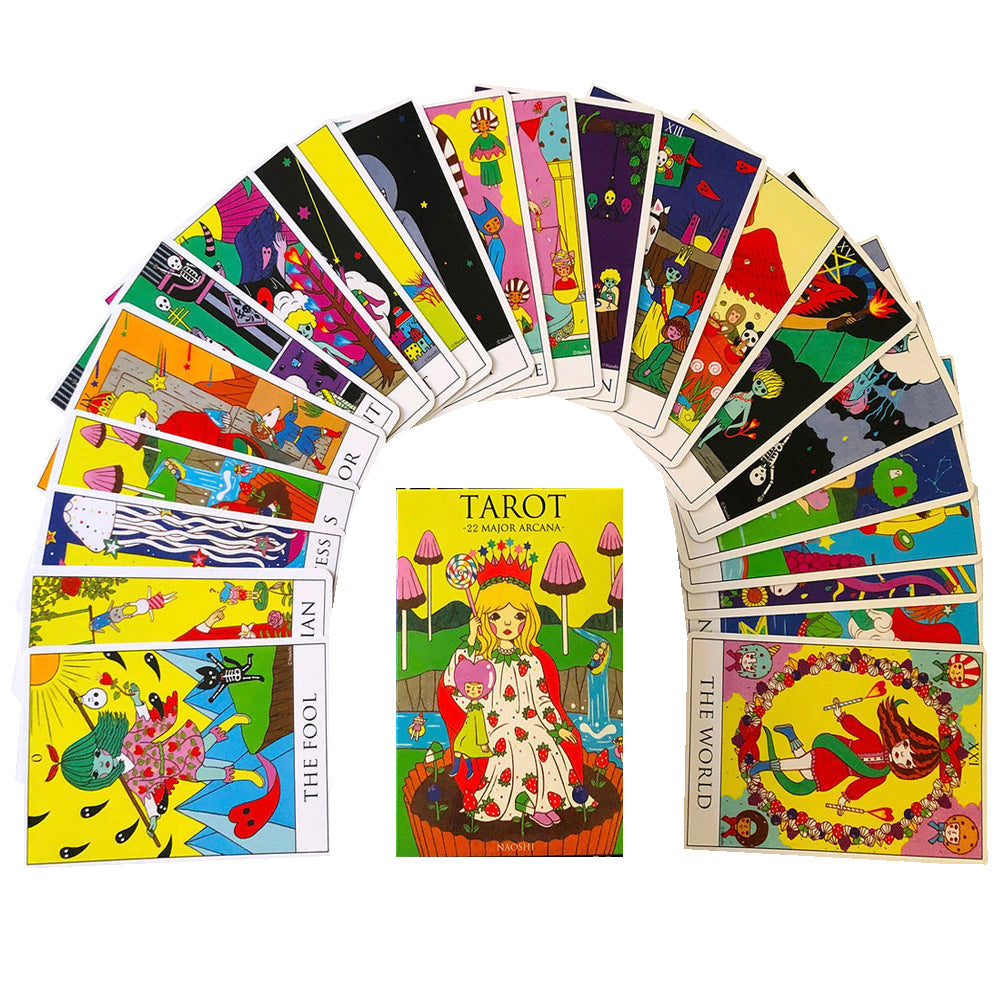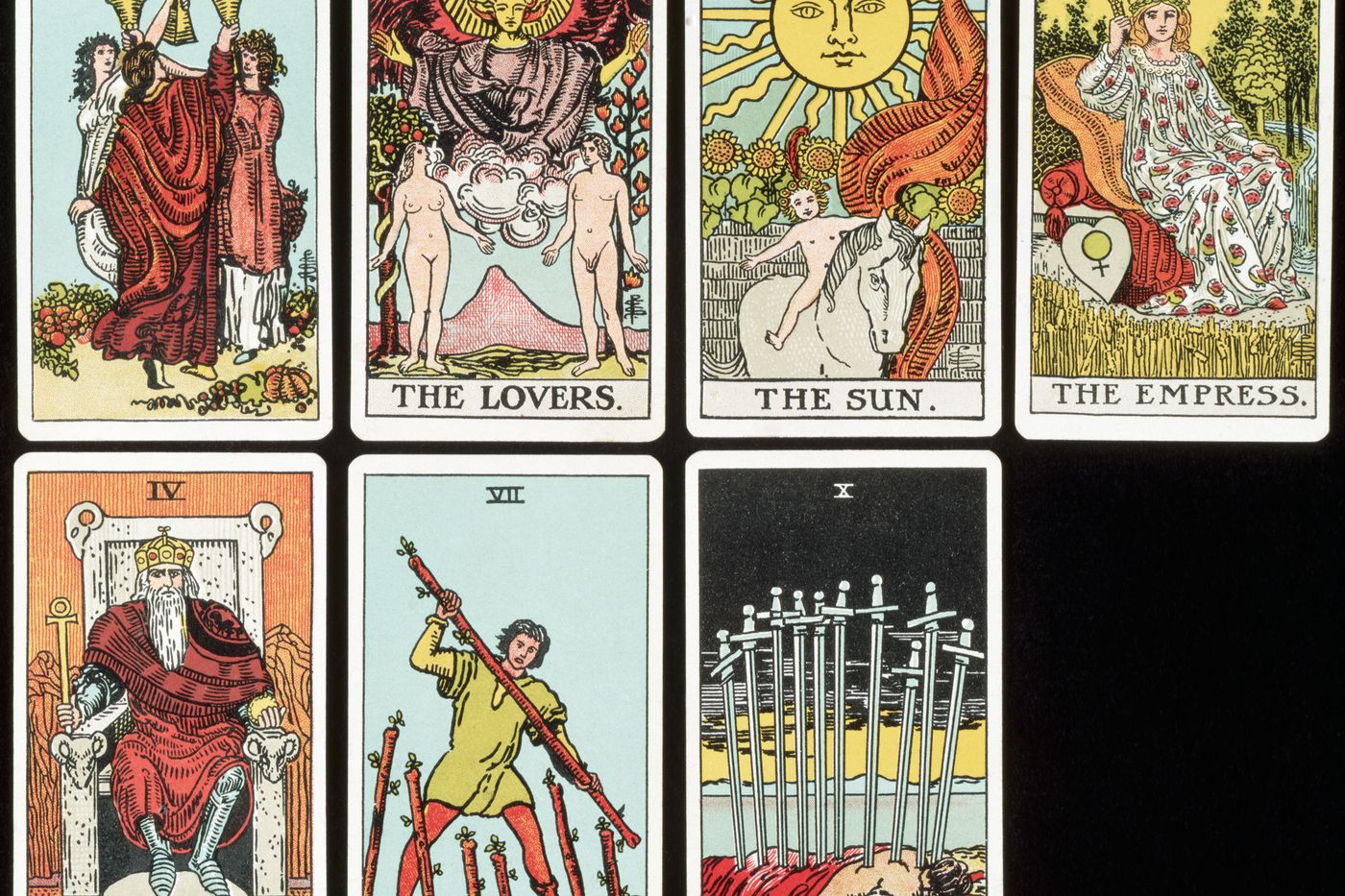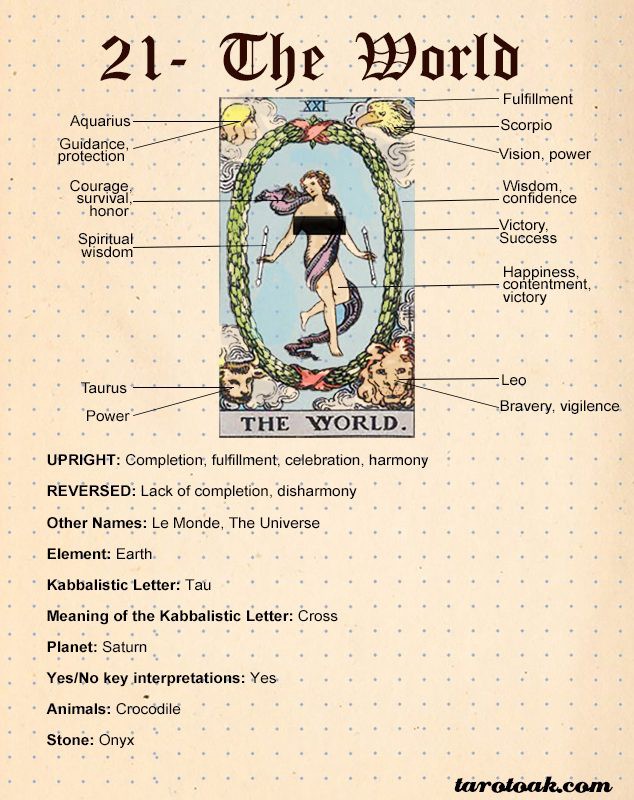
You can choose from a few basic spreads of tarot. There's the Situation-action-outcome tarot spread, the Past-present-future tarot spread, and the Celtic cross tarot spread. The basic spreads are not that difficult to learn, and they are a great way to get started if you are a beginner.
Simple tarot spreads
Tarot Spreads don't require a lot of knowledge. They are simple, but they provide a surprising amount of information. These cards are great for providing general overviews of interrelated issues and allow for flexibility in interpretation. Here are some examples of simple Tarot Spreads.
The first card is the situation that you wish to see. The second card represents the obstacle or challenge that must be overcome. The third card is about the past. The fourth card represents the future. The fifth card displays the subconscious and conscious thoughts of the individual. The opposite card to the first one shows the perceptions and thoughts of the other.

Situation-action-outcome tarot spread
The Situation, Act, Outcome Tarot Spread is a three-card spread that examines the possible outcomes of a particular situation. Although it's not a love reading, this reading is popular for questions about relationships and love. It may not provide a complete picture of the situation but it can reveal things you might not have otherwise.
This spread of tarot is great for finding more information. This spread is used most often in love tarot readings. It uses three cards from the top row and two from the bottom row. The spread is drawn by drawing the first card from each row. This represents you. The second represents your partner.
Past-present-future tarot spread
The Past-present, future Tarot spread can help you connect to your past as well as your future. The spread can be used in different ways depending on what you like. The spread is made up of three cards, each placed side-by-side. These cards are laid side-by-side so that the Four Elements run across, covering problems, work, and money.
One of the most well-known three-card spreads is the Past-Present Future Tarot spread. It's especially helpful if you have questions about timing. The first card is a representation of elements that influence the present. The next card in the deck represents the future. For the Past-Present Future Tarot spread, it is important to meditate on the first of the cards in the deck and imagine the question fitting.

Celtic cross tarot spread
One of the most popular Tarot layouts is the Celtic cross tarot spread. It can be used to find out how your life is going, or for more specific questions. There are a few different variations of this layout, with each position having slightly different meanings.
The Celtic cross can be divided into two sections. The first section contains the querent, while the second section is reserved for the block. The third section is the root of your problem, or the energy hidden behind the issue.
FAQ
Is it possible make a living from a hobby?
Not necessarily.
However, it is possible to become wealthy by starting a business around your hobby.
Let's assume you like cooking. You love healthy food so you open a new restaurant.
Customers are charged a small fee for organic food made from scratch.
You will eventually be able to grow your client base and hire people who are willing to work with you.
You may eventually add vegan dishes and gluten-free options to your menu.
In this situation, you have a successful business which has allowed you the freedom to lead the lifestyle that you want.
You don't have a right to quit your job.
Instead, you could simply run your restaurant while still holding down your regular 9-5 position.
What are educational hobbies?
An educational hobby is a activity that allows you to learn by doing it. This could be anything you want, such as playing sports or learning how to play an instruments.
It should be enjoyable and have fun. It doesn't have to be done all the time. However, if you get bored of it, you should think about other things you can do instead.
Also, you need to be careful not to spend too much on these activities. They can end up costing more than you think.
What's a hobby?
For kids, a hobby can be any activity that they are interested in doing as part of their everyday routine. Some kids like to build things, draw, paint, write, or play with toys.
Many parents worry that their children will get into trouble if they're allowed to do whatever they want. This is not necessarily true. Your child won't get in trouble if they are safe and don't do any harm to anyone.
It is important to remember that people may not always choose to do what they enjoy. They might decide to draw instead of write if they enjoy drawing pictures.
There are many different hobbies, so it is up to you which one you love the most.
What are some great hobbies?
Doing something you enjoy is the best hobby. You will find it easier to stay motivated if you love what your doing. It will also be easier to find a reason to stop feeling tired or sick.
Our hobbies include painting, crafts, photography and cooking.
You might also consider volunteering at a local charity shop or animal shelter, children’s hospital, hospice, elderly home, school, community centre, church, and other places.
Let's say you are looking for something more exciting. Take up skydiving or rock climbing, parasailing, parasailing and paragliding.
There are many unique ways to spend time in the outdoors, whether you're looking for adventure or a more traditional way to do it. These include caving, cliff diving, cave tubing, abseiling, sea kayaking, rafting, canoeing, climbing, trekking, bushwalking, mountaineering, backpacking, trail running, orienteering, off-road driving, quad biking, motorcycling, motorcycle riding, dirt bike riding, jet boating, hang gliding, hang gliding, parachuting, hang gliding, heli-skiing, ice skating, snowmobiling, snowshoeing, snowshoeing, cross country skiing, downhill skiing, telemark skiing, ski touring, sled dog racing, snowboarding, snowkiting, snowmobiling, spelunking, snowshoe hiking, snowshoeing and many more.
How do I get started with my new hobby?
You must decide what hobby you want before you start any new hobby.
Once you have decided on your subject, passion is the key.
It is crucial to know why you want to pursue a hobby. It will provide you with direction and purpose.
Once you decide what kind of hobby you want, you can start planning.
Think about the equipment that will be needed.
Consider whether you need to attend classes or seminars.
You should ensure that you have enough space to enjoy your hobby.
Consider joining a club, or group. These groups can offer support and guidance.
The last thing you should do is think about how much money it would cost to pursue your hobby.
What are some competitive hobbies?
You can compete in running, swimming or cycling as well golfing or tennis.
They're usually played by people who enjoy physical activity but also provide an opportunity for social interaction.
You'll likely find others who are interested in your hobby if it involves physical activity.
This may mean joining a club or group where you meet regularly to play sports together.
You can also participate in team games where you play alongside others.
These include: football (soccer), soccer, cricket, netball.
There are many types and levels of competition.
Some competitions are organized for purely recreational purposes.
Others are used to assess competitors' abilities.
Others are also designed to reward exceptional performance.
These cases result in prizes for the winners.
Other competitions are meant to test competitors' strength and stamina.
These are endurance events.
For example, marathon races, triathlons, Ironman Triathlon, etc.
These events are often contested by athletes who train hard.
They will be required to follow a rigorous training program in order to prepare mentally and physically.
They might also have to travel for preparation.
It is important that you remember that not every athlete can compete in every type or event.
Statistics
- Studies show that just six minutes of reading can reduce stress levels by 60 percent. (oberlo.com)
- Much of this decline reflects the fact that teens are less likely to work today than in the past; among employed teens, the amount of time spent working is not much different now than it was around 2005. (pewresearch.org)
- This 100% accurate personality-analyzing hobby quiz discovers your passion based on your characteristics. (quizexpo.com)
- In comparison, men in the “no humor” condition were refused 84.6% of the time and were only accepted 15.4% of the time. (time.com)
- The Role of the Mind in Sex, Dating, and Love: Men in the “humor” condition received phone numbers from 42.9% of the female participants and were refused 57.1% of the time. (time.com)
External Links
How To
How to learn a music instrument
There are many ways you can learn to play music. You could either go to a school, buy a book, take lessons from someone who plays an instrument, watch videos online, etc. Here are some tips and techniques to help you learn if your goal is to create your own learning path.
-
Find something you are interested in. Try another instrument if you don't love any of the ones you see. It would be hard to get into playing an instrument if you don't enjoy doing it.
-
Be patient. It takes time to learn something new. Expect to not be able master all things immediately. Keep practicing each day.
-
You should practice often. Even if you feel tired, keep practicing. This will make sure you don't forget the lessons you have learned.
-
You should choose a comfortable place to practice. Ideal is a quiet area where you don't have to disturb anyone else. It is important to keep the room clear of distractions. For example, avoid having loud music playing nearby.
-
Have fun! Music should be enjoyed. Have fun with your practice. You will be motivated to do more if you have fun.
-
Set goals. Setting goals will help you to know exactly what your goal is. You will never be ashamed to fail.
-
Keep track your progress. Notate all of your achievements and failures. It will help you become a better person over time.
-
Take breaks. Sometimes, all you need is to take a moment to think. Take breaks to allow you to reflect on things.
-
Ask questions. Ask for help if you are unsure or have questions about certain aspects of the instrument. They may be willing to help.
-
Listening is the best method to learn. Many musicians learn by listening to the songs they love and then imitate them. This allows them to understand the basic ideas behind the song.
-
Read books. Reading books will teach you more than watching videos or taking classes. Books can also provide information that is not available elsewhere.
-
Join a group. Playing with other people will make you more practice. Plus, you will find people with similar interests to you.
-
You can watch tutorials. Tutorials are short videos that give detailed information on a topic. These videos usually focus on one specific aspect of the instrument. Tutorials can help you understand complex parts of your instrument.
-
You can try different methods. Some people prefer to learn through lectures, whereas others learn better by reading. Experiment until you find what works best for you.
-
Practice makes perfect. There is no way to be an expert overnight. Instead, you must put in lots of effort before becoming skilled enough to perform well.
-
You can learn from other musicians. Listening to other people play their favorite songs can help you learn faster.